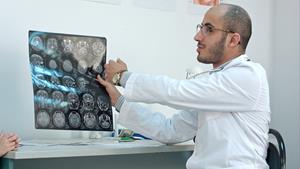
In one recent year, the National Safety Council reported that motor vehicle accidents accounted for 4.5 million injuries requiring professional medical treatment. These injuries led to approximately $445.6 billion in costs, including medical expenses, lost wages and productivity, property damage, and employer costs.
Car accident injuries can range in severity and may include minor bumps and bruises that heal quickly or life-threatening injuries that cause permanent disabilities.
The severity of an injury may depend on:
- Whether the accident was a single-vehicle rollover or a collision stationary obstacle that penetrated the windshield.
- Whether the vehicle collided with another vehicle and the location of the point of impact, for example, was the accident a head on collision or a rear-end or t-bone accident?
- The speed of the vehicles at the time of impact and whether the drivers were aware of the impending collision.
- Whether the car was equipped with properly functioning safety equipment, including seatbelts, airbags, and child car seats.
While these factors may influence the seriousness of an injury, below are certain types of injuries that are commonly suffered in car accidents.
Whiplash and Other Soft Tissue Injuries
The impact of a collision may tear or cause other damage to the body’s soft tissue like muscles, tendons, and ligaments. According to the American Automobile Association one form of soft tissue injury, whiplash, is the most common injury reported to auto insurance companies. While anyone in an auto accident may suffer from whiplash, this injury occurs most frequently in rear-end collisions.
The Mayo Clinic explains that a rear-end crash may forcefully and rapidly jolt the neck back-and-forth. Sudden, violent movement of the head and neck can injure soft neck tissue, resulting in a strain or sprain of the neck muscles. Individuals may develop whiplash symptoms within a few days of an accident. Symptoms include neck pain or stiffness, limited range of motion, headaches, dizziness, shoulder or upper back pain, or numbness or pain in the arms. Accidents involving excessive speeds may create a more forceful impact that may worsen the severity of whiplash.
The muscles, tendons, and ligaments in the back may also tense up in an accident, leading to back sprains that can cause lingering pain for years after sustaining an injury. Car crashes may cause a driver’s or passenger’s knee to hit the dashboard with force, leading to ligament tears in their knees. Many people visit physical therapists or chiropractors to treat soft tissue injuries, but more severe injuries may require surgical procedures.
Head Injuries and Traumatic Brain Injuries

First-responders at an accident scene will treat visible head wounds, such as a laceration. However, internal head injuries may not be immediately apparent. Internal head injuries may range in severity from mild concussions to extensive traumatic brain injuries that result in a coma or death.
In the days and weeks following an accident, victims of traumatic brain injury may experience memory and cognition problems, mood swings, headaches, or seizures. In some cases, victims may not recognize they are experiencing symptoms, so family members should watch for any changes in behaviors or emotions.
Recently, the Centers for Disease Control reported that motor vehicle crashes accounted for approximately 19 percent of deaths caused by traumatic brain injuries.
Spinal Cord Injuries and Herniated Disks
According to the American Association of Neurological Surgeons, motor vehicle crashes are the leading cause of spinal cord injuries (SCIs) in young people across the U.S.
A complete SCI can cause an injured person to experience a total loss of motor and sensory function below the point of the injury. A loss of sensation often results from a contusion or bruise to the spinal cord or by compromised blood flow to the injured area. Individuals who sustain an incomplete SCI may experience limited motion or function on one side of the body.
The impact of an accident may injure bones or rupture disks in your spine. The Mayo Clinic states that symptoms of a herniated disk may include pain in the shoulders, arms, or lower extremities. Pain associated with a ruptured disk may involve sharp pain, burning, numbness, or a tingling sensation.
Chest and Organ Injuries
Drivers and passengers commonly suffer chest injuries in car accidents. Drivers may slam into the steering wheel, and front-row passengers may hit the dashboard. Seat belts and airbags can also cause chest injuries such as bruising.
Injured victims may experience immediate symptoms of a serious chest injury after an accident. Michigan Medicine explains that chest pain or difficulty breathing may indicate internal organ damage. The lungs, heart, esophagus, and blood vessels are at risk of injury in a collision. In addition, trauma to the side or lower chest may damage the spleen or liver, and trauma to the back of the chest may injure a kidney.
Lacerations, Scrapes, and Cuts
As broken glass and metal shards fly around the car after impact, vehicle occupants may sustain minor scrapes and cuts or deep lacerations. Loose objects inside the vehicle can also become dangerous projectiles upon impact. A phone, travel mug, computer bag, or children’s toys may be tossed around a vehicle causing injury to passengers.
Broken Bones
Depending on variables like speed and point of impact, accident victims may suffer from broken or fractured bones. Oftentimes individuals sustain broken ribs from impacting with the inside of the car, dashboard, or steering wheel. Severely broken or shattered bones typically require surgery, and some may result in long-term impaired mobility.
Mental Health Consequences
Accident victims may experience mental or emotional trauma following an auto accident. The Anxiety and Depression Association of America explains that injured victims may experience depression, anxiety, fearfulness, sleep disorders, or post-traumatic stress disorder. Long-term mental health consequences may interfere with victims’ daily activities and prevent them from returning to work. When accidents result in fatalities, families may suffer from a lifetime of feelings of sadness and loss.
Experienced Bronx personal injury attorneys regularly fight for the rights of injured victims to seek the compensation they are entitled to. Attorneys can help determine the value of an accident injury claim and protect injured victims’ rights.



